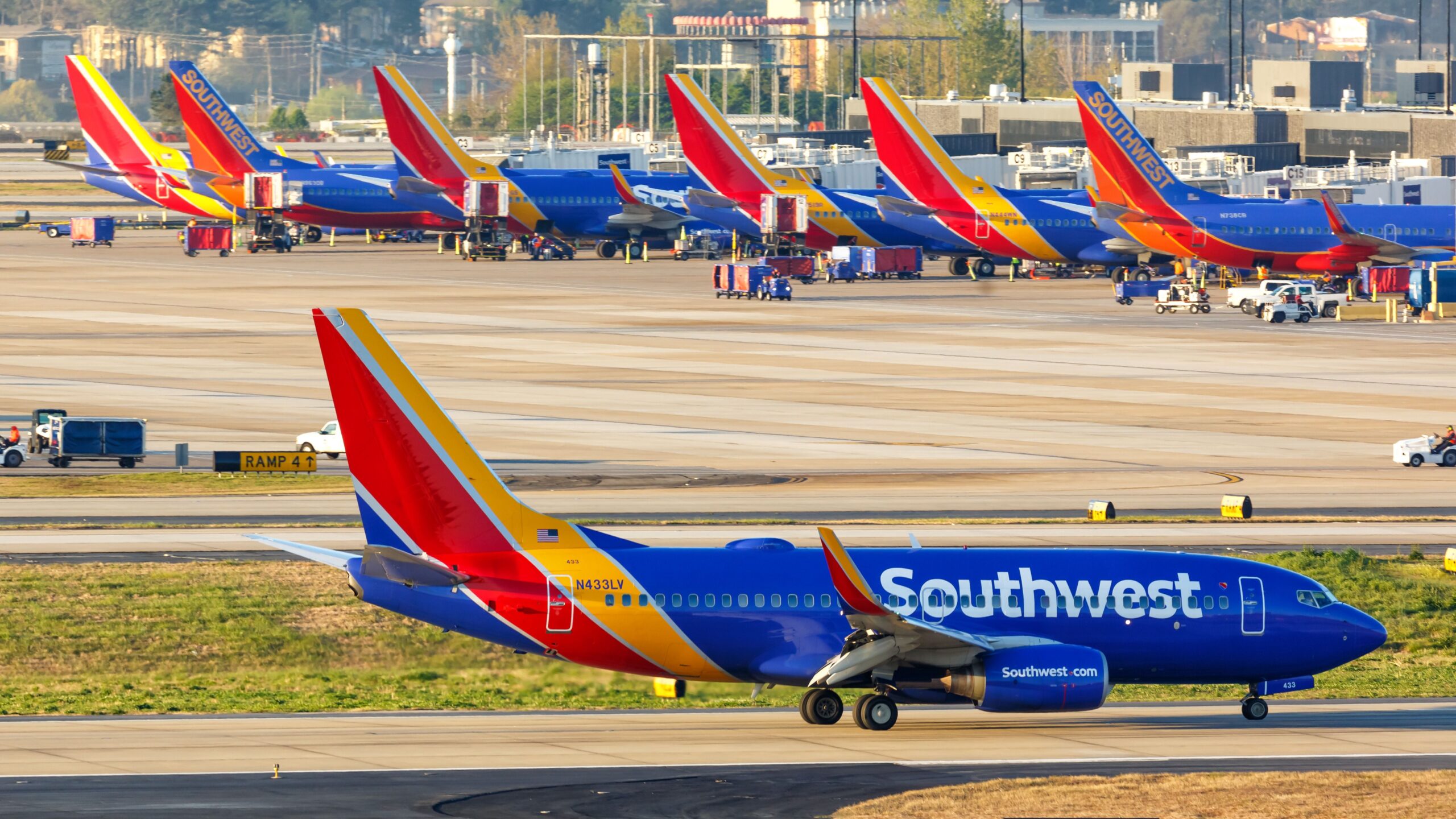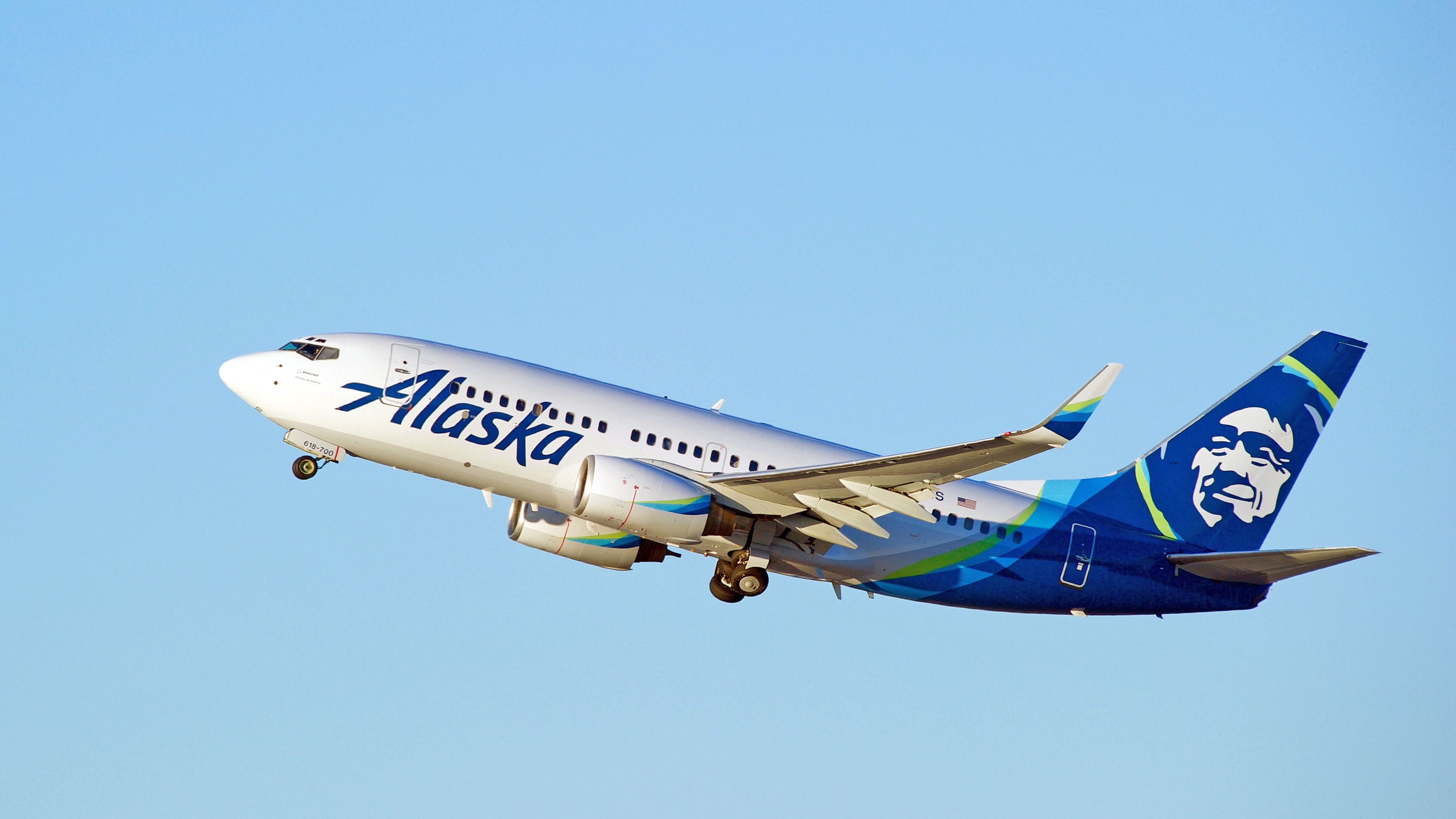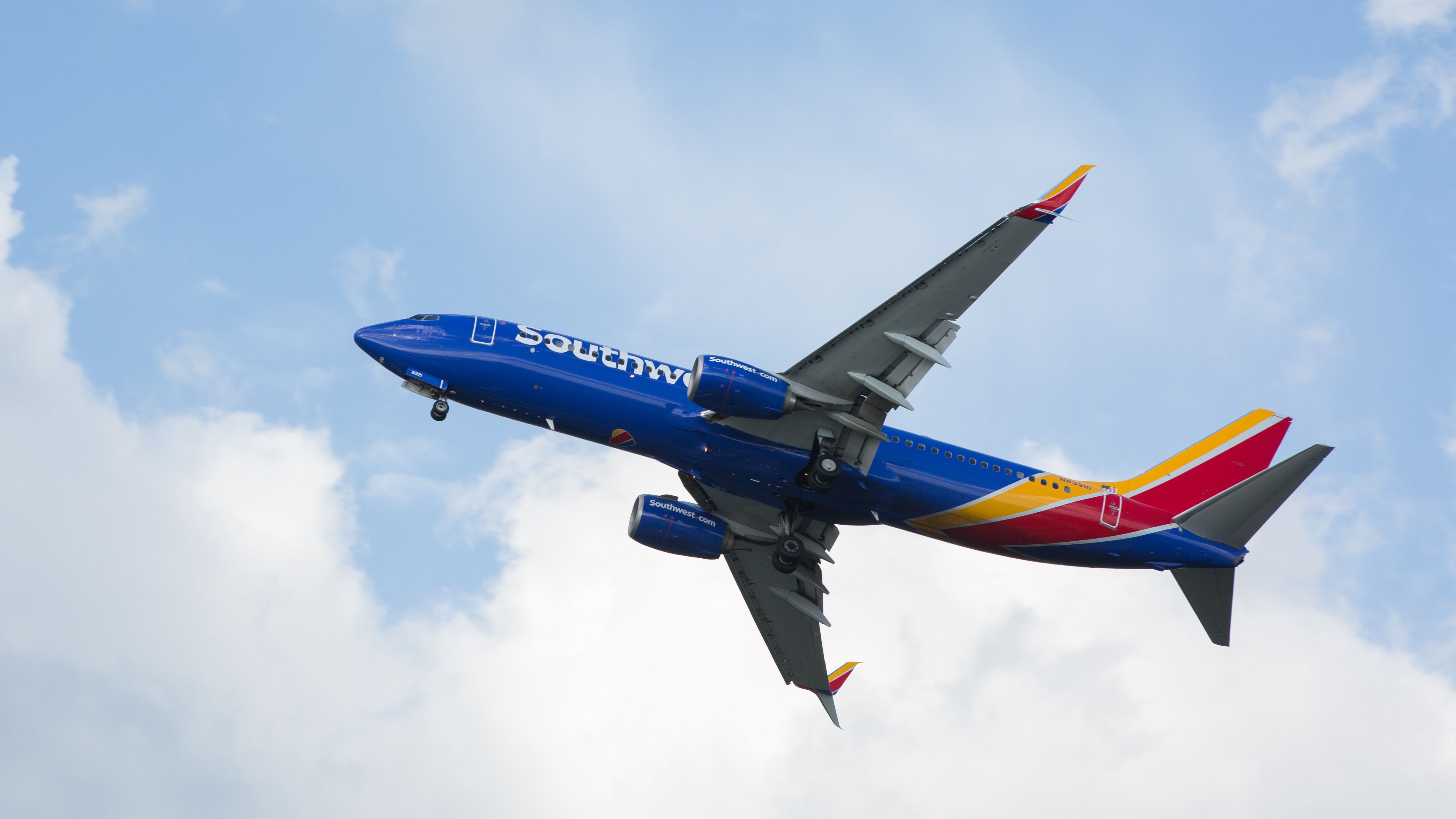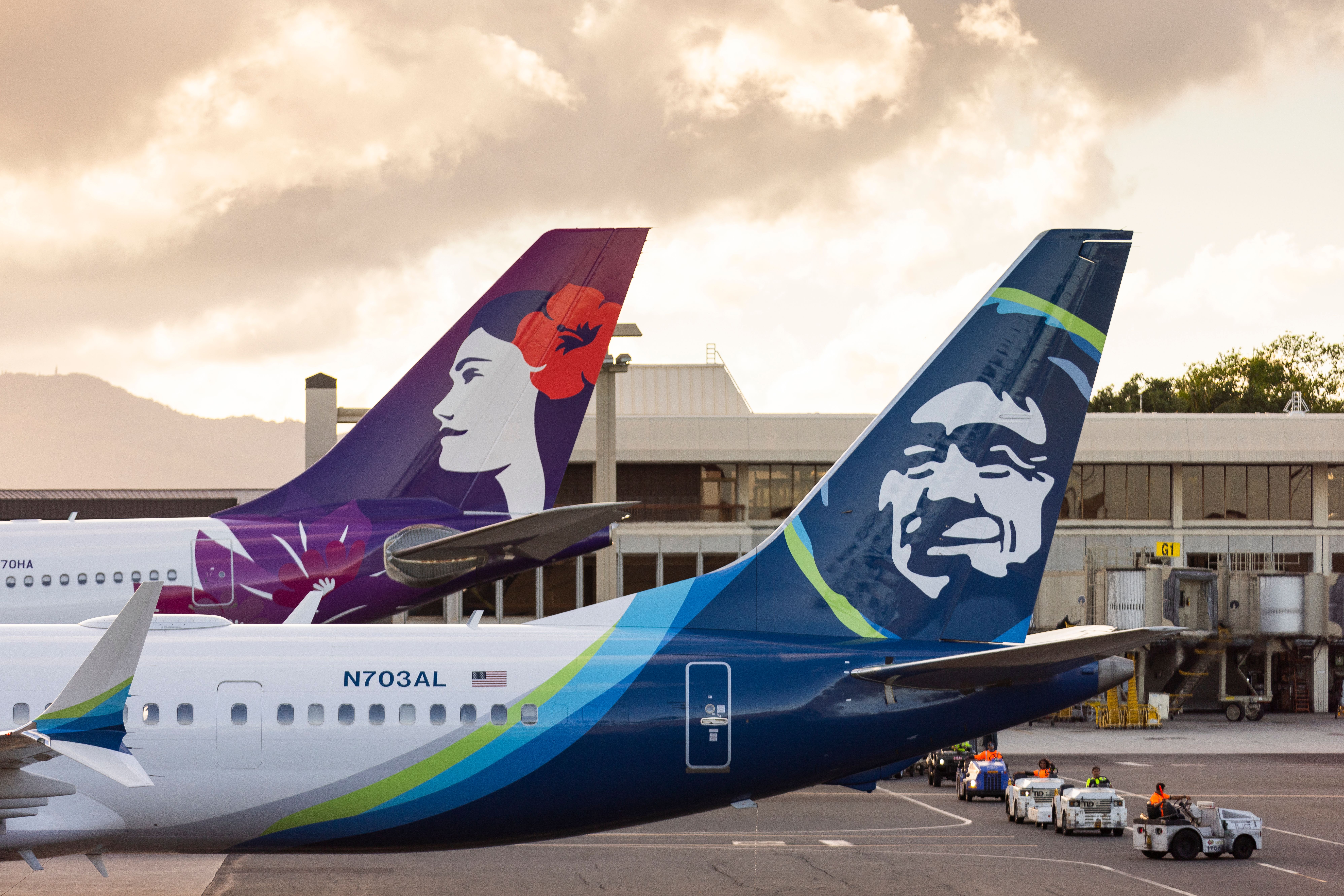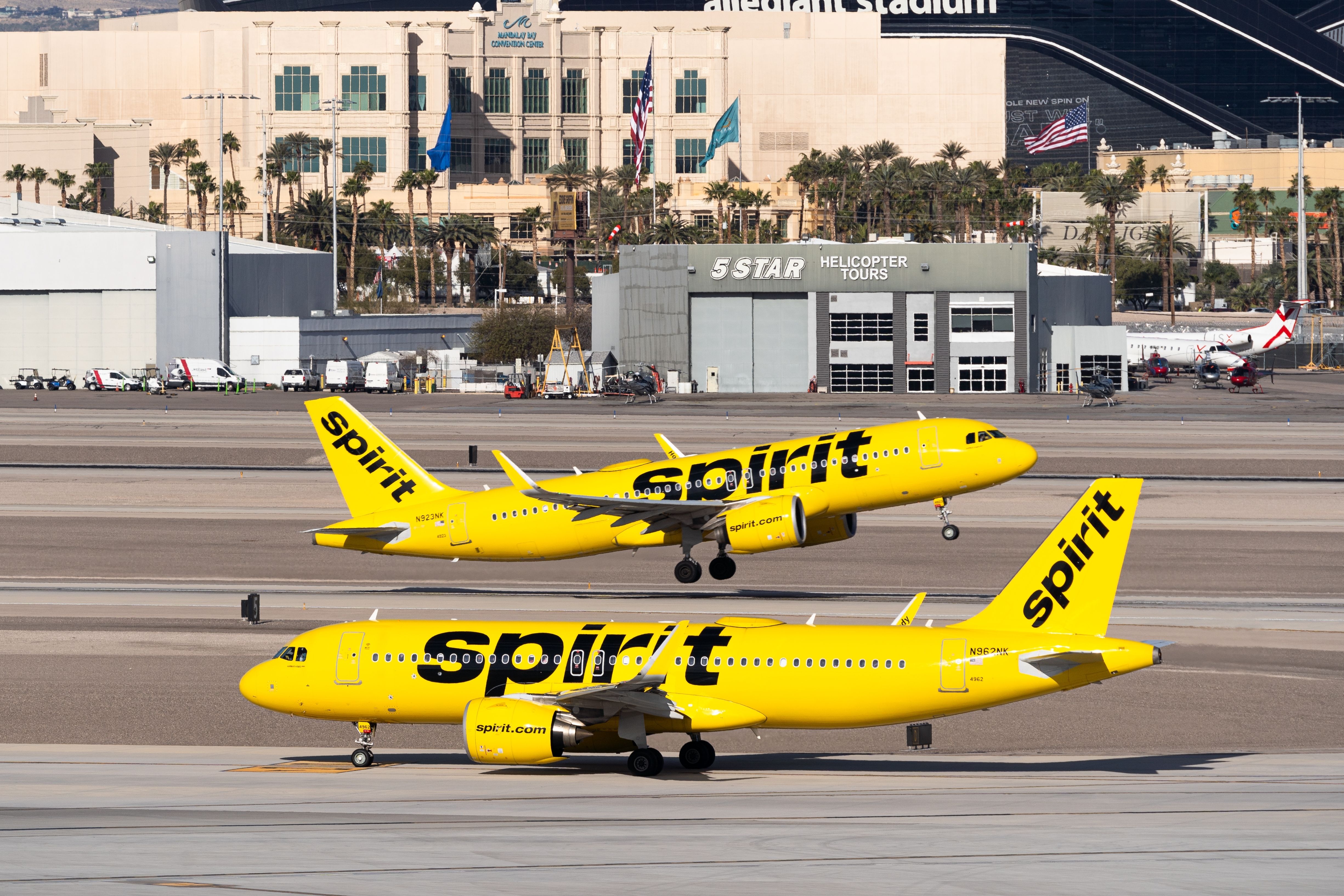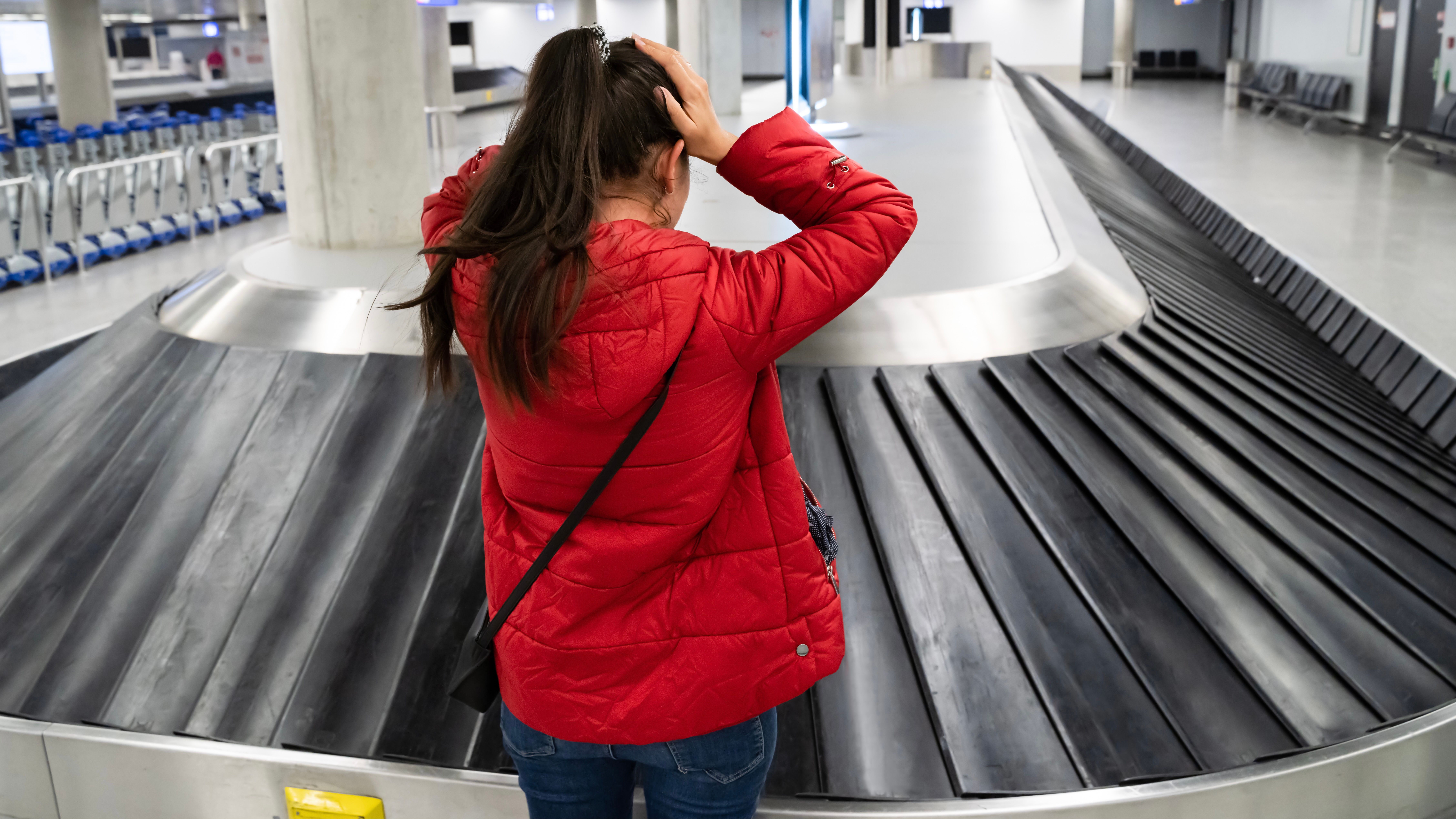With all the turmoil and changes facing Southwest and Alaska Airlines, they could be forgiven if employee motivation slipped and performance dipped, but that was certainly not the case in July. The official DOT figures show that these two airlines were the most reliable US carriers by canceling the least flights, and both finished in the top three for on-time arrivals.
July flight cancelations higher than YTD
On Friday, the US Department of Transportation (DOT) released its July Air Travel Consumer Report (ACTR), designed to assist consumers with information on the quality of airline services. The ACTR reports data for canceled flights, mishandled baggage, on-time performance and mishandled wheelchairs and scooters.
Photo: Philip Pilosian | Shutterstock
In July, DOT reported 657,233 domestic flights operated, 5.5% more than the 623,120 operated in July 2023 and up 2.14% month-over-month from the 643,484 operated in June 2024. In July, the ten marketing network carriers scheduled 676,807 domestic flights, of which 19,574 (2.9%) were canceled, compared to 2.5% in July 2023 and 1.3% in June 2024.
Photo: Southwest Airlines
In July 2024, 2.9% of flights were canceled, significantly higher than the year-to-date (YTD) cancellation rate of 1.7% in 2024. The three airlines with the lowest cancelations remained the same from June, although the top position was shared between Southwest Airlines and Alaska Airlines, with both airlines canceling just 0.7% of their flights.
Photo: Alaska Airlines
In third position was Hawaiian Airlines, now being merged with Alaska Airlines, with a cancelation rate of 0.8%, placing all three podium finishers well below the July total rate of 2.9%. At the other end of the scale were Delta Air Lines (5.6%), Spirit Airlines (5.2%) and Frontier Airlines (4.5%).
DOT expects all scheduled flights to be operated, but if a flight is canceled or delayed due to an airline issue, it expects the carrier to provide consumers with the promised services. In practice, that means providing customers with meals and free rebooking on the same airline and hotel accommodation, if applicable.
Photo: GingChen | Shutterstock
Punctuality is another issue that customers and DOT focus on, but unfortunately, on-time arrivals fell to 68.4% of flights, down from 74.3% in June and 69.6% in July 2023. It was also well below the YTD on-time arrival rate of 75.6%. The leaders were again Hawaiian Airlines (84.1%), Alaska Airlines Network (76.4%) and Southwest Airlines (70.6%), while the least punctual were Spirit Airlines (61.1%), Frontier Airlines (61.8%) and American Airlines Network (65.7%).
Complaints about airline service
DOT classifies customer complaints into five categories: Tarmac Delays, Mishandled Baggage, Mishandled Wheelchairs and Scooters, Bumping/Oversales and Incidents Involving Animals. In July, reporting marketing carriers handled 45.6 million bags and reported a mishandled rate of 0.75%, higher than the June 2024 rate of 0.58% and equal to the July 2023 rate of 0.75%.
Photo: Andrey_Popov/Shutterstock
Airlines must have and adhere to assurances that they will not allow aircraft to remain on the tarmac for more than three hours for domestic and four hours for international flights without allowing passengers to deplane. There are exceptions related to safety, security and Air Traffic Control related reasons.
In July, airlines reported 72 tarmac delays of more than three hours on domestic flights, compared to the 70 reported in June 2024. For the same month, airlines reported three tarmac delays of more than four hours on an international flight, compared to six reported in June 2024.
Mishandled Wheelchairs and Scooters
The number of wheelchairs and scooters traveling on aircraft rose again in July, with reporting marketing carriers checking 85,988 wheelchairs and scooters, compared to 82,778 in June. Despite the increased volume, mishandling rates barely changed, with 1.35% mishandled in July compared to 1.30% in June, although it was lower than the 1.39% mishandled in July 2023.
As pointed out last month, achieving a defect rate of just 1.35% sounds great, but in real terms, that means around 1,118 passengers were inconvenienced when an airline mishandled their mobility equipment. DOT agrees and is pushing for regulatory changes and more training for airport personnel in this area.
